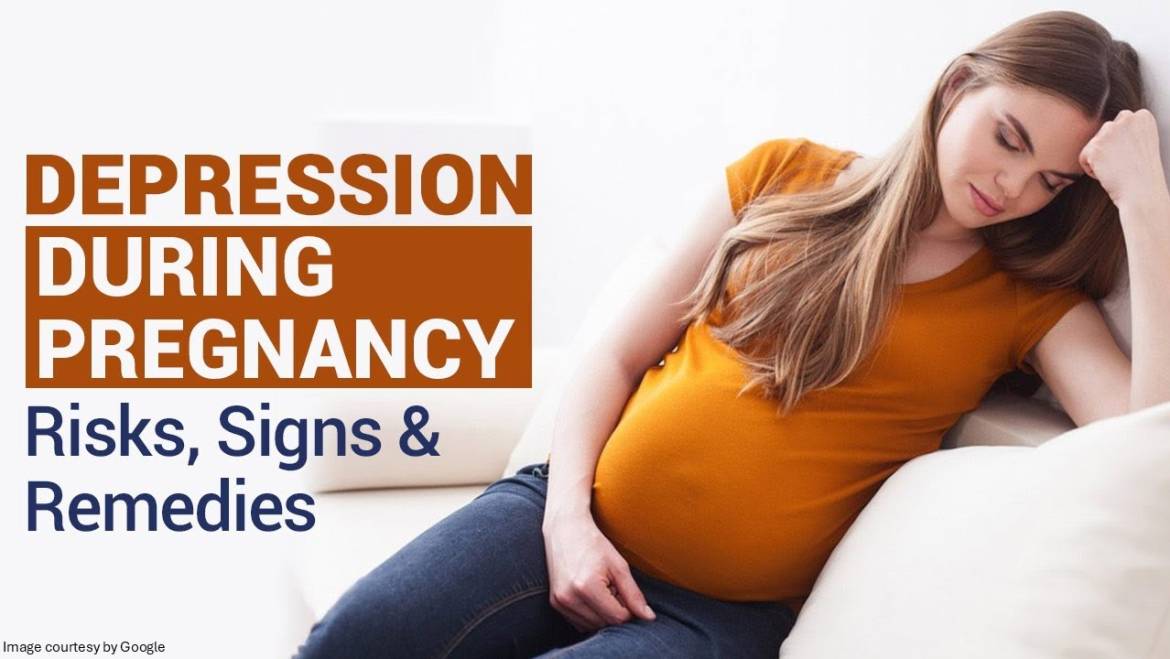Every woman feels great pleasure and contentment during pregnancy. But, this magnificent experience may be marred by some unsettling mental condition called depression for many women. The study shows depression and pregnancy are very intrinsic features in approximately 14-23% of women.
How can you identify perinatal depression or depression during pregnancy?
Prenatal depression can differ from person to person, and some obvious signs of depression are a feeling of hopelessness, sadness, low self-esteem, anxiety, insomnia, mood swings, difficulty concentrating, and many others. Sometimes, women feel isolated from friends and family during pregnancy.
Causes of prenatal/perinatal mental health
There is no particular reason to incur depression during pregnancy; it could be physical, emotional, and some social matters can also disturb a pregnant woman. Here, we will discuss three major factors that may cause depression among pregnant women:
- Prenatal depression due to physical causes
The feeling of morning sickness, dizziness, nausea, walking with extra weight, and feeling exhausted after covering a little distance is very common in pregnancy. Experiencing pain in the lower abdomen and going for frequent urination can be a cause of frustration. Even carrying a heavy head and getting annoyed to wear large-sized tops and pajamas and other petty things could pull anyone towards depression. Some physical pregnancy symptoms are also identified during pregnancy, such as:
-
- Hormonal changes: The hormonal changes increase by 30-50% during pregnancy, which can lead to swelling of the breasts and legs, morning sickness, and pelvic pain. All these factors can contribute to feelings of depression in women.
- Thyroid: Thyroid levels can fluctuate during pregnancy, potentially causing depression.
- Nausea: Nausea is common due to hormonal imbalance in most pregnant women. Some women experience nausea only in the initial months of pregnancy, while others may experience it throughout all nine months.
- Prenatal depression due to emotional causes
Bringing a new life into the world is always an emotional experience for every woman. In such a situation, any little change or negative behavior of friends and relatives could provoke depression in women.
Previous miscarriages or feelings of unhealthy birth can also lead to depression and fear among women. A woman who is terrified of the birth conditions due to certain reasons, a feeling that she may get as how if something wrong happens with the baby, or if she can be a good mother or not, or how if her husband leaves her, etc., all these insecurities can make her emotionally depressed.
- Prenatal depression symptoms due to social causes
Pressure from older generations with an attitude that we didn’t go through prenatal depression and instructions about ‘What to do or what not’ will always be the cause of depression. There are still many women who feel the pressure of delivering a healthy baby, which could also precipitate mental tension among women.
Treatments for depression during pregnancy or resources for pregnant women to approach
The study shows that those women who don’t discuss their mental or physical illness and health issues with someone, not even with doctors, out of shame or guilt cause preterm delivery, low birth weight, and delayed development of a baby. So, it’s a suggestion to every pregnant woman that they must talk about their mental condition with doctors or health care providers who will help them to cope with the situation. Doctors suggest that prenatal care and psychological therapies are more beneficial than medicines.
Prenatal care – It includes a healthy lifestyle, timely medical checkups, awareness about medications, timely vaccinations, tests, and ultrasounds, and a friendly and joyful homely environment. Pregnant women should be advised by doctors and elders about a few basic things, such as:
-
- The foods to avoid during pregnancy,
- Things to avoid in early pregnancy,
- Special and specific pregnancy tips, especially the pregnancy tips for first-time moms,
- Required pregnancy care,
- Pregnancy exercises or yoga for a smooth pregnancy period.

Psychological therapy – Psychological therapies include talk therapy, light therapy, medication, and acupuncture, which reduce pregnancy depression to a great extent.
-
- Talk therapy – Talk therapy can help eliminate negative thoughts, fear, and attitudes by replacing them with positive behavior.
- Light therapy – In light therapy, patients are exposed to high-intensity light to regulate hormones in the brain.
- Acupuncture – Acupuncture helps to reduce morning sickness, headaches, and sleep problems. It also reduces back and pelvic pain among women.
- Workout – Doing yoga and some light exercises can help women get rid of mental pain and depression.
- Medication therapy – If the depression while pregnant has reached a severe level and psychological therapies are not providing any relief, then you can switch to antidepressant medication, but you must consult a doctor before taking medication.
Other ways to get relief from depression: The best way to help you from depression is to take care of yourself physically and emotionally and keep prenatal depression as distant as possible.
- Take proper rest – Stress is a major issue for depression; that’s why you have to take proper rest, take small breaks during work, read books, enjoy music, and do other activities that make you feel calm and relaxed.
- Share your feelings – Talk about your problems and issues with your better half, friends and family, and even other pregnant women to exchange your views.
- Balanced diet & nutrition – Eat a balanced diet full of iron, calcium, proteins, and minerals on time. Depression and pregnancy can both be handled well with a good diet that has miraculous effects on health.
- Physical fitness – Exercising, yoga, swimming, and morning or evening walks will relieve stress.
Conclusion:
After talking about anxiety and depression during pregnancy, we can conclude that physical and emotional changes are very natural in this phase; women must have a positive attitude to avoid prenatal depression symptoms. They must discuss their problems with experts, family members, and friends to resolve them. The proper intake of a pregnancy diet is also very important. Women can join a support group of other pregnant women facing a similar situation and discuss things to know about pregnancy that will make them feel better.



